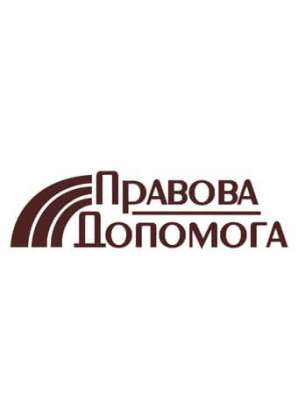What documents are needed for accreditation of a representative office of a NGO in Ukraine?
Cost of services:
Reviews of our Clients
... our work on joint projects assured us of your high level of professionalism
Accrediting a foreign non-governmental organization's representative office (or obtaining state registration) can be a rather intricate and time-consuming process. It requires careful attention to detail and a solid understanding of the procedural requirements. Let's discuss why this is the case.
It's worth noting that a representative office of a foreign non-governmental organization doesn't have legal entity status in Ukraine. Essentially, this means that the representative office acts on behalf of and at the behest of the parent organization, within the limits of authority defined by the position (or charter) of the Representative Office (if one exists), and/or the power of attorney granted to the head of the Representative Office.
At our company, we offer registration services for representative offices, and today, we'd like to focus on the important stage of the procedure involving the collection of documents required for accreditation. What exactly are these documents, and what are the guidelines for preparing them? Keep reading to find out.
You may also like: Stages of Accreditation of a Foreign Non-Governmental Organization in Ukraine
What documents do you need to accredit a representative office of a foreign non-governmental organization?
To get accreditation for a representative office, you'll need to submit:
1. An application for state registration (or accreditation) of the representative office in the prescribed form.
The application must be signed by the head of the organization or by someone authorized by the parent organization.
If you send the application and documents by mail, the head's signature must be notarized.
2. A copy of a document such as a certificate, extract, or a similar document issued by an authorized body of a foreign country. This document confirms the registration of the foreign non-governmental organization.
Each country has its own version of this document. For example, in Hungary and Poland, it is an extract from the judicial register, and in some cantons of Switzerland, it is an extract from the corporate register.
The document should contain information about the parent organization's name, location, identification code, and the head or governing bodies. Registries usually also contain information about the type of activity, reporting, and more.
3. A copy of the foreign non-governmental organization's constituent documents, such as its charter, regulations, and so on.
Please note! The constituent documents must specify the relevant governing body's right in the parent organization to create a representative office.
If the members of the organization make the decision to create a separate unit, rather than the board of directors (or another collegial body) according to the charter, the minutes or resolution of the members' meeting is required for accreditation.
4. A decision of the authorized body of the foreign non-governmental organization regarding the establishment of a separate unit of the foreign non-governmental organization, representative office, branch of a foreign charitable organization, and the appointment of its head.
There are several rules to follow in this case:
- The decision should be made within the authority of those who have the power to make it;
- The name of the representative office should match that of the parent organization;
- The decision should specify who will lead the representative office in Ukraine;
- The decision cannot be issued later than the power of attorney for the head.
5. The constituent document (charter, regulation) of the separate unit, representative office, or branch (if the presence of a founding document (charter, regulation) is provided for by the decision to create a separate unit, representative office, or branch).
This document is not mandatory and is practically not used in practice.
6. Power of Attorney for the head of the Representative Office.
The power of attorney should contain the widest possible range of powers of the head.
7. Receipt of payment of the administrative fee.
As of January 1, 2023, the administrative fee is 752 UAH.
However, the Ministry of Justice may exempt from the payment of the administrative fee when registering a Representative Office of an organization whose activity is aimed at providing assistance to the Armed Forces, other military formations, law enforcement (special) bodies, civil defense agencies, volunteer formations of territorial communities, other persons ensuring national security and defense, resistance and containment of armed aggression by a foreign state, as well as persons affected by such armed aggression.
8. Ownership structure according to the form and content determined in accordance with the legislation.
The ownership structure should include a schematic representation of the relationships between the organization, its founders, and persons directly or indirectly influencing the organization. We will prepare the ownership structure based on the data and documents provided by the client.
9. Extract or other document from the trade, banking, or judicial register confirming the registration of a non-resident legal entity in the country of its location.
10. A notarized copy of the document certifying the identity of the ultimate beneficial owner of the legal entity.
11. Power of Attorney for lawyers of our company.
It should be noted that documents 2-6 and 9-11 from the above list must be notarized, apostilled, or legalized with a translation into Ukrainian.
During the period of martial law, documents 8-11 may not be required by the Ministry of Justice in accordance with the Resolution of the Cabinet of Ministers of Ukraine No. 209. However, when planning accreditation, we recommend checking whether any changes have been made to the aforementioned Resolution.
You may also like: Basic Rules for the Accreditation of a Foreign Non-Governmental Organization in Ukraine
Basic requirements for the documents to be executed by a representative office of a non-governmental organization
Requirements for document format.
All documents provided by the parent organization must be notarized, legalized, or apostilled with a translation into Ukrainian that is certified as accurate or notarized by the translator's signature.
We will handle the translation of the documents into Ukrainian with notarized certification of the translator's signature in Ukraine. However, the documents must be legalized or apostilled in the country where the parent organization is located.
The simplest approach is to apostille the documents, which usually takes no more than 7 business days (depending on the country). However, apostilles are only valid for countries that have signed the Hague Convention of 1961.
Requirements for document content.
All documents created by the parent organization must contain information necessary for accrediting the representative office. For instance, the decision to establish the representative office must include information about its name, leader, and comply with the current legislation within the scope of its authority.
The power of attorney for the head of the representative office should provide all necessary powers for activities on the territory of Ukraine. The power of attorney should provide the widest possible authority to the head of the representative office.
Any discrepancies in documents from the parent organization may be grounds for refusal of accreditation of the representative office.
We had a case where we had to deal with a refusal to register due to a different translation of the name of the parent organization in the decision and constituent documents. The discrepancy arose because different translators worked on the documents, and such a discrepancy was purely technical (translation standards allowed both options), but the client was denied accreditation. After correcting the discrepancy, the representative office was accredited.
In summary, documents must comply with the format and content requirements of Ukrainian legislation. Lawyers are involved in accreditation at the start of work to ensure compliance.
Our legal team recommends the following:
- Make several notarized copies of translated documents from the parent organization for the bank and tax authorities.
- Carefully review and correct any discrepancies in the documents from the parent organization before signing. It's important to note that legal systems and document requirements may differ between countries.
- If there are no issues with the document format in the parent organization's country of residence, it's advisable to prepare the documents in the format accepted by the Ukrainian Ministry of Justice.
- If you have doubts about the accuracy of your documents, you can consult with the Ministry of Justice. Our team can assist you with this during the document preparation process.
- Before seeking accreditation, be sure to review the relevant legislation. Any changes to document requirements or deadlines can result in a refusal, so it's best to be fully informed in advance.
If you're looking for a reliable assistant to help you with accreditation in Ukraine, don’t hesitate to contact us.
We can consider your goals and suggest the best way to proceed, as accreditation may not always be the optimal option.
If you do decide to pursue accreditation, we can provide full support throughout the process in Ukraine.




